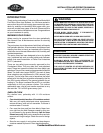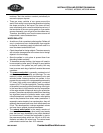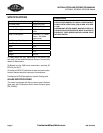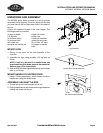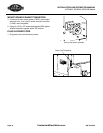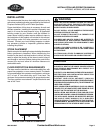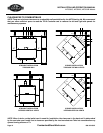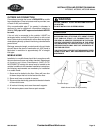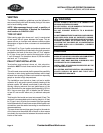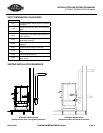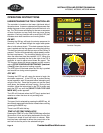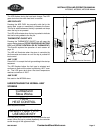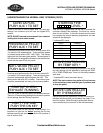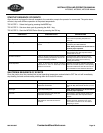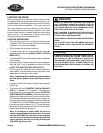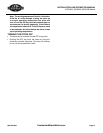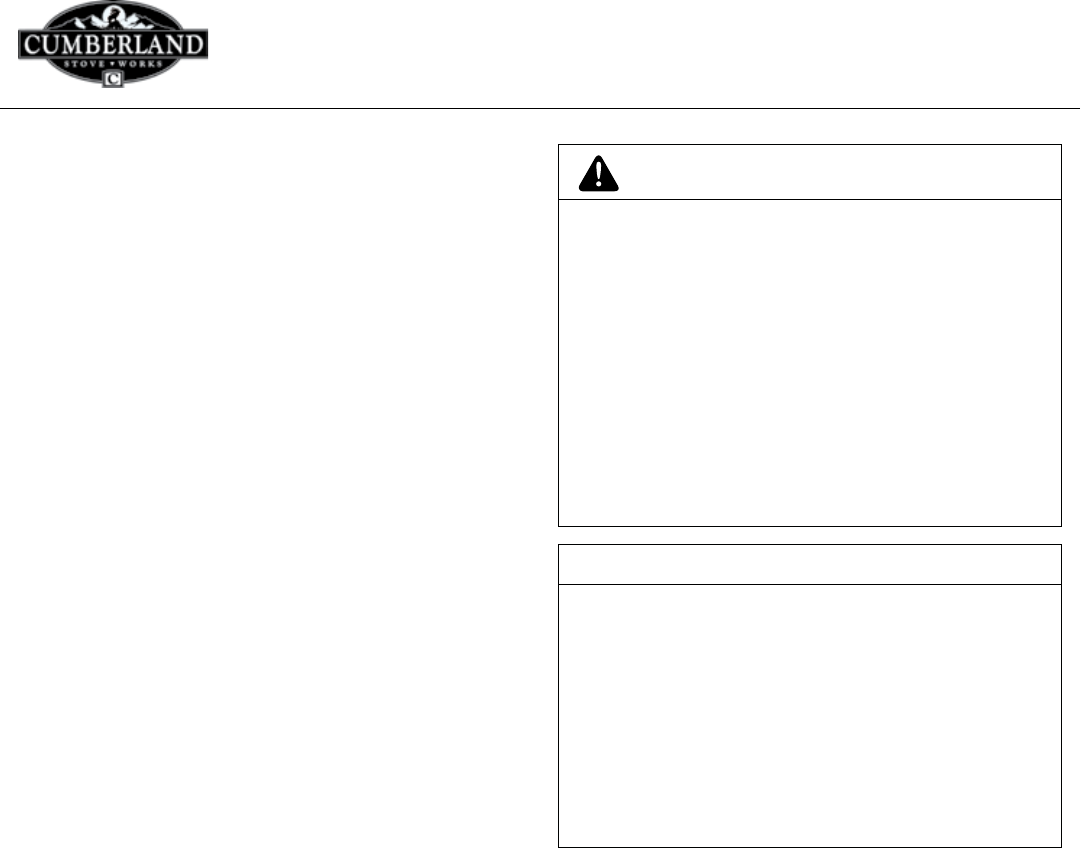
INSTALLATION AND OPERATION MANUAL
MF3500G, MF3500S, MF3500B Models
Page 14 800-345-6007
CumberlandStoveWorks.com
VENTING
The following installation guidelines must be followed to
ensure conformity with both the safety listing of this stove
and to local building codes.
NOTE: Where passage through a wall, or partition of
combustible construction is desired, the installation
shall conform to CAN/CSA -8365.
TYPE OF VENT
Pellet venting pipe (also known as L vent) is constructed
of two layers with air space between the layers. This air
space acts as an insulator and reduces outside surface
temperature of pipe to allow a clearance to combustibles
of only 3”.
A UL listed 3” or 4” type L pellet vent exhaust system must
be used for installation and attached to the pipe connector
provided on the back of the stove. Use a 3” to 4” adapter
for 4” pipe. A cap must be used at the termination of type
L vent chimneys. For elevations above 2,500 feet above
sea level, a 4” L is required.
PELLET VENT INSTALLATION
Termination must exhaust above air inlet elevation.
Installation MUST include three vertical feet of pellet vent
pipe.
This will create some natural draft to prevent the possibility
of smoke or odor during appliance shutdown and to keep
exhaust from causing a nuisance or hazard from exposing
people or shrubs to high temperatures.
The installation must include a clean out tee to enable
collection of fly ash and to permit periodic cleaning of the
exhaust system. 90º elbows accumulate fly ash and soot
thereby reducing exhaust flow and performance of the
stove. Each elbow or tee reduces draft potential by 30% to
50%. Use no more than 180º of elbows (two 90º elbows,
or two 45º and one 90º elbow, etc.) to maintain adequate
draft.
Total length of horizontal vent must not exceed 10 feet. The
maximum recommended vertical venting height is 12 feet
for 3” type L vent. All joints for connector pipe are required
to be fastened with at least three screws and all pellet vent
connections must be sealed according to manufacturer’s
recommendations.
The area where the vent pipe goes through to the exterior
of the home must be sealed with silicone or other means
to maintain the vapor barrier between the exterior and the
interior of the home.
WARNING
DO NOT CONNECT THIS UNIT TO A CHIMNEY FLUE
SERVING ANOTHER APPLIANCE.
DO NOT INSTALL A FLUE DAMPER IN THE EXHAUST
VENTING SYSTEM OF THIS UNIT.
DO NOT CONNECT DIRECTLY TO A MASONRY
CHIMNEY.
DO NOT TERMINATE VENT IN ANY ENCLOSED OR SEMI-
ENCLOSED AREA, SUCH AS; CARPORTS, GARAGE,
ATTIC, CRAWL SPACE, UNDER A SUN DECK OR PORCH,
NARROW WALKWAY OR CLOSED AREA, OR ANY
LOCATION THAT CAN BUILD UP A CONCENTRATION
OF FUMES SUCH AS A STAIRWELL, COVERED
BREEZEWAY ETC.
CAUTION
VENT SURFACES CAN GET HOT ENOUGH TO CAUSE
BURNS IF TOUCHED BY CHILDREN. NONCOMBUSTIBLE
SHIELDING OR GUARDS MAY BE REQUIRED.
PELLET VENT MUST MAINTAIN A MINIMUM 3 INCH
CLEARANCE TO ANY COMBUSTIBLE.
INSTALL VENT AT CLEARANCES SPECIFIED BY THE
VENT MANUFACTURER.
ALL VENTING, WHETHER VERTICAL OR HORIZONTAL,
JOINTS SHOULD BE MADE GAS TIGHT WITH
RECOMMENDED SEALANTS.



